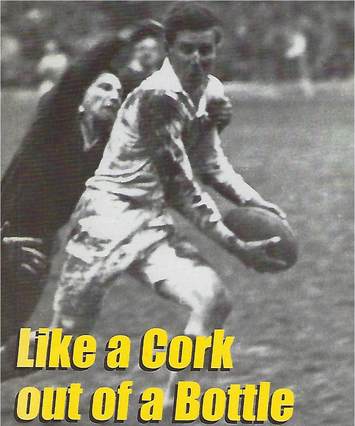The way we live decides what we see. We may only see people's weaknesses and not their strengths. We may see the world as a dreadful place and miss its wonder.
How many times I've been in a room and not noticed the pictures on the wall, or met interesting people and not heard what they said, or missed the birdsong in the morning because I was wrapped up in myself.
There's a story of a drunkard who said to his friend: 'You must be drunk, you've got two noses.' How easy to peer into the stable, smell the animals - and miss the child in the manger.
I remember a student coming to Oxford who complained that the students around him were a rotten lot. This person changed his life and soon he was saying how lucky he was to be surrounded by so many first-class people.
Mother Teresa said: 'If we really want to pray, we must first learn to listen, for in the silence of the heart God speaks; to be able to hear God, we need a clean heart, for a clean heart can see God, can hear God, can listen to God.'
There was a great African 16 centuries ago called Augustine. A book of Cicero turned him towards faith when he was 16 and he began to read the scriptures, but apparently he found them clumsy. What, in fact, was clumsy was his own life. He wrote in his Confessions: 'I wanted impurity glutted rather than quenched.... My conceit was repelled by the simplicity of the scriptures.'
Later, through the prayers of his mother, Monica, and the help of friends like Bishop Ambrose, he sorted out his clumsiness. One day he was in the garden and he seemed to hear a child's voice saying, 'Take up and read.' He did that. He opened the Bible and read this verse: 'Not in riotings and drunkenness, not in chamberings and impurities, not in contention and envy. But put ye on the Lord Jesus Christ, and make no provision for the flesh and its lusts.'
He accepted that and the old life dropped from him like a garment. So one of the great minds of history came into its own. And his books were a great light of civilization through the Dark Ages and beyond. His classic, The City of God, gives a long but brilliant picture of Rome falling and the Dark Ages beginning. It is remarkably topical. In it he says: 'We are all destined for the immortality for which purity of heart is the preparation.... Purity is a virtue of the mind. It has courage as its companion.' And: 'We must not give a hearing to those who praise the fire's light and find fault with its heat.'
In 1992, I had a mini-stroke, which removed most of my energy. A prayer of Augustine was specially helpful: 'Light of my heart, do not let my darkness speak to me.'
English


